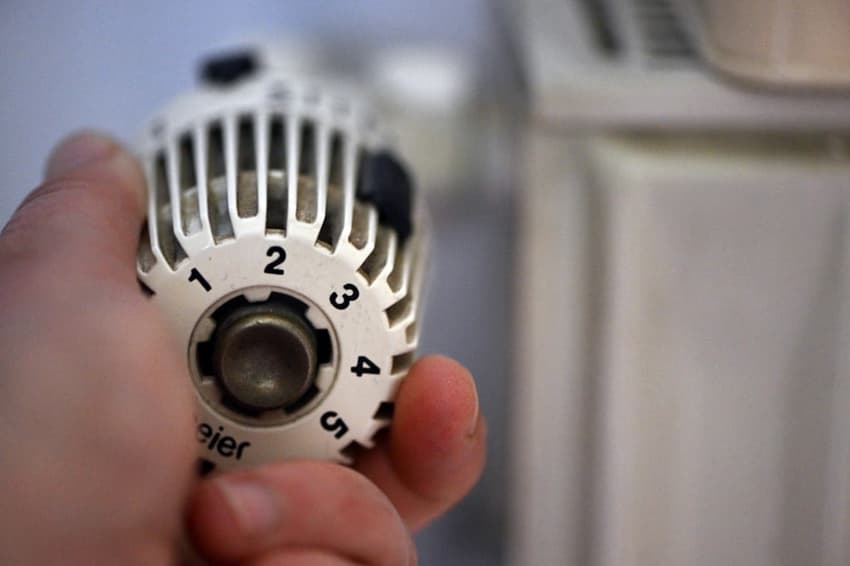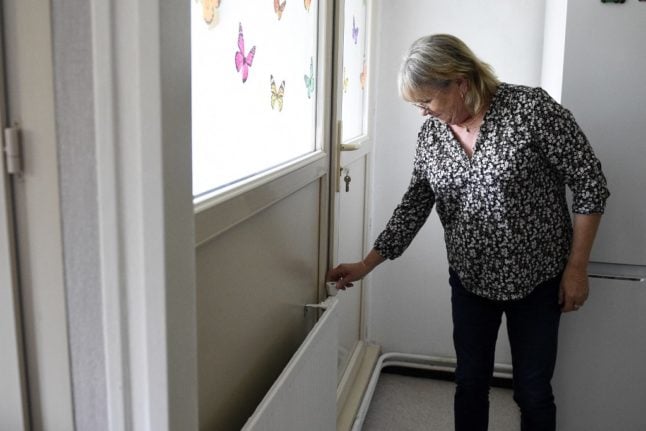Key points: What are Italy's new heating restrictions for winter?

The Italian government is asking everyone in the country to turn the heating down and use it for a shorter time this winter under new plans to ease the energy crisis. Here's a look at what this means for households.
Italian residents will be asked to turn the heating down by one degree and turn it off for an extra hour every day under the government's latest plans to save energy, amid soaring prices and increased concerns about energy security after Russia, on which Italy is heavily dependent for gas, repeatedly shut off the supply in recent weeks.
READ ALSO: How much are energy prices rising in Italy this autumn?
On Thursday, Italy’s outgoing Ecological Transition Minister Roberto Cingolani signed off on a new energy-saving decree introducing tighter limits and restrictions for the use of gas heating over the winter.
Here's a breakdown of what it says and who the rules apply to.
Heating switch-on postponed
Firstly it's important to know that Italy has long had rules dictating exactly when residents can have their heating on - from the date on which you can switch on the central heating, to the number of hours per day you can use it.
These rules have been adjusted this year to mean the "the overall winter heating season will be shortened by 15 days, postponing the switch-on date by eight days and bringing the switch-off forward by seven,” the government said in a press release
The exact winter heating period in every part of Italy is set at a local level and depends on which of the country's 'climate zones' you live in. See a guide here to when and where your heating can be switched on in 2022.
The government's press release also states that "the daily operating period will be reduced by one hour a day," meaning that buildings will have to use heating for an hour less every day than last year. Whether that means it comes on later or switches off earlier will be decided by each building's amministratore, or building manager.
Temperatures capped
The decree will also tighten the cap on the temperature heating can be set to, with businesses being asked not to exceed 18C (down from 19C) and residents told to set their heating at a maximum of 19C (down from 20C).
Do these rules apply to everyone and how are they enforced?
Certain types of buildings will continue to be exempt from heating restrictions, the government confirmed.
The rules will not apply to “places of worship, nurseries, kindergartens and swimming pools” nor to “buildings whose heating systems rely on sources of renewable energy”.
In practice, it appears that the restrictions are more like guidance, as they are not backed up by penalties for those who fail to switch their heating on and off at the prescribed times.
Realistically, heating restrictions will mainly apply to people living in condominiums with centrally-controlled heating serving the entire building (riscaldamento centralizzato), a common feature of apartment blocks in many Italian towns and cities.
READ ALSO: Climate zones: When can you turn your heating on Italy this winter?
A draft of the decree stated that local authorities would carry out random inspections in “public buildings, apartment blocks and businesses” and monitor daily gas consumption data with the help of gas grid operators.
The document did not mention the enforcement of such rules in the case of independent houses or apartments equipped with their own separate heating system (riscaldamento autonomo).

The new restrictions will apply to all public and private buildings except places of worship, nurseries, kindergartens and swimming pools. Photo by Jean-Christophe VERHAEGEN / AFP
It's unclear what happens if these inspections reveal any rogue residents have had their heating on all night, or have turned the thermostat up to 20 degrees.
At the time of writing there was no mention of penalties, and no indication that the government is planning on introducing fines. In early September, Cingolani said the new rules would not be “draconian” but rather largely based “on citizens’ responsibility”.
And, as in previous years, local authorities will be able to extend the permitted heating times if the weather is deemed unusually cold.
“In the event of particularly severe weather conditions, local authorities will retain the power to authorise heating outside the times set in the decree,” the government press release stated.
The new energy-saving plan, as The Local first reported in early September, came alongside gas-supply diversification efforts as part of a series of nationwide measures aimed at tackling the energy crisis.
National energy agency ENEA estimates the new restrictions could save as much as 2.7 billion cubic metres of gas over the winter season.
Comments
See Also
Italian residents will be asked to turn the heating down by one degree and turn it off for an extra hour every day under the government's latest plans to save energy, amid soaring prices and increased concerns about energy security after Russia, on which Italy is heavily dependent for gas, repeatedly shut off the supply in recent weeks.
READ ALSO: How much are energy prices rising in Italy this autumn?
On Thursday, Italy’s outgoing Ecological Transition Minister Roberto Cingolani signed off on a new energy-saving decree introducing tighter limits and restrictions for the use of gas heating over the winter.
Here's a breakdown of what it says and who the rules apply to.
Heating switch-on postponed
Firstly it's important to know that Italy has long had rules dictating exactly when residents can have their heating on - from the date on which you can switch on the central heating, to the number of hours per day you can use it.
These rules have been adjusted this year to mean the "the overall winter heating season will be shortened by 15 days, postponing the switch-on date by eight days and bringing the switch-off forward by seven,” the government said in a press release
The exact winter heating period in every part of Italy is set at a local level and depends on which of the country's 'climate zones' you live in. See a guide here to when and where your heating can be switched on in 2022.
The government's press release also states that "the daily operating period will be reduced by one hour a day," meaning that buildings will have to use heating for an hour less every day than last year. Whether that means it comes on later or switches off earlier will be decided by each building's amministratore, or building manager.
Temperatures capped
The decree will also tighten the cap on the temperature heating can be set to, with businesses being asked not to exceed 18C (down from 19C) and residents told to set their heating at a maximum of 19C (down from 20C).
Do these rules apply to everyone and how are they enforced?
Certain types of buildings will continue to be exempt from heating restrictions, the government confirmed.
The rules will not apply to “places of worship, nurseries, kindergartens and swimming pools” nor to “buildings whose heating systems rely on sources of renewable energy”.
In practice, it appears that the restrictions are more like guidance, as they are not backed up by penalties for those who fail to switch their heating on and off at the prescribed times.
Realistically, heating restrictions will mainly apply to people living in condominiums with centrally-controlled heating serving the entire building (riscaldamento centralizzato), a common feature of apartment blocks in many Italian towns and cities.
READ ALSO: Climate zones: When can you turn your heating on Italy this winter?
A draft of the decree stated that local authorities would carry out random inspections in “public buildings, apartment blocks and businesses” and monitor daily gas consumption data with the help of gas grid operators.
The document did not mention the enforcement of such rules in the case of independent houses or apartments equipped with their own separate heating system (riscaldamento autonomo).

It's unclear what happens if these inspections reveal any rogue residents have had their heating on all night, or have turned the thermostat up to 20 degrees.
At the time of writing there was no mention of penalties, and no indication that the government is planning on introducing fines. In early September, Cingolani said the new rules would not be “draconian” but rather largely based “on citizens’ responsibility”.
And, as in previous years, local authorities will be able to extend the permitted heating times if the weather is deemed unusually cold.
“In the event of particularly severe weather conditions, local authorities will retain the power to authorise heating outside the times set in the decree,” the government press release stated.
The new energy-saving plan, as The Local first reported in early September, came alongside gas-supply diversification efforts as part of a series of nationwide measures aimed at tackling the energy crisis.
National energy agency ENEA estimates the new restrictions could save as much as 2.7 billion cubic metres of gas over the winter season.
Join the conversation in our comments section below. Share your own views and experience and if you have a question or suggestion for our journalists then email us at [email protected].
Please keep comments civil, constructive and on topic – and make sure to read our terms of use before getting involved.
Please log in here to leave a comment.